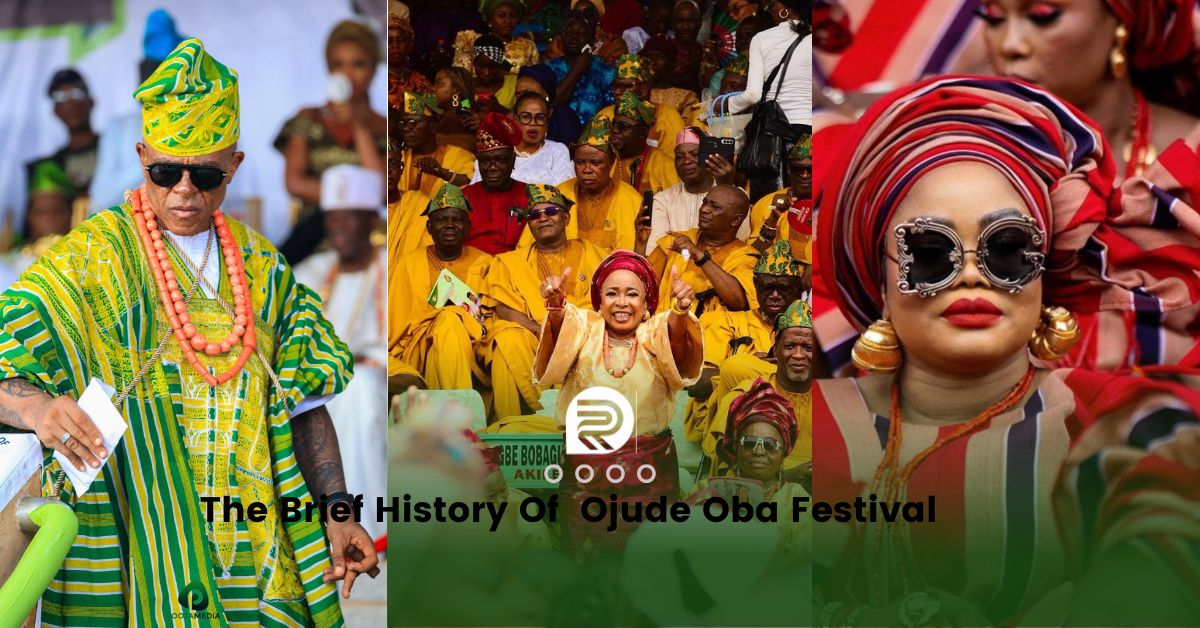Entertainment
The Brief History Of Ojude Oba Festival

The Origin
The Brief History Of Ojude Oba Festival finds its origins back over a century during Awujale Ademuyewo Afidipotemole’s reign in 1878, a slave named Alli, who later became Alli _Tubogun openly practiced Islam with his master’s blessing. This endorsement allowed Islam to flourish in Ijebu-ode lending to the construction of a local mosque by 1880. One of the people who embraced Islam then was Chief Balogun Kuku, after converting to Islam, Chief Balogun KuKu could no longer participate in Odeda and initiated the Ita -oba festival, aligning with his new faith.
The Ojude Oba Festival evolved from the Odeda Festival. In this annual event, worshippers of various traditional religions showcased their identities through dance band music before the Awujale and other Chiefs. The Ojude Oba festival, a cherished tradition of the Yoruba people in Ijebu-Ode, Ogun State, Nigeria, is both spiritual and spectacular. It gathers different cultural age groups known as “regbe regbe,” comprising locals and their associates, who parade in elaborate Yoruba attire at the king’s palace courtyard. This vibrant display of colors and cultural pride attracts visitors worldwide, showcasing the richness of Yoruba heritage. Beyond its visual allure, the festival fosters community unity and celebrates the enduring traditions that define Yoruba identity, making it a significant cultural event in Nigeria’s southwest region.
The Festival
The Imam of Ijebuland leads the festival with an opening prayer while the National Anthem follows alongside the Ogun State Anthem and the Awujale Anthem, the lineage praise of the Ijebu comes next following the Regberegbe procession which includes various ages and is called after the characters such as Obafuwaji, Bobagbimo, Bobakeye, Gbobaniyi, and Gbobalaye. The festival is known to boost the local economy by attracting thousands of visitors, which in turn benefits businesses, artisans, and vendors. This is another part of the Brief History Of Ojude Oba Festival.
The Regberegbes
The Brief History Of the Ojude Oba Festival is not complete without mentioning one of the most significant highlights of the Ojude Oba festival which is the horse parade which includes various age groups and families known as ‘Regberegbes’ dressed in stunning and colorful attire to showcase their beautifully adorned horses in the competitive display of horsemanship and style However, each group’s female and male counterparts are distinguished by their dancing patterns, appearance, and attire, Each Regberegbes brings its unique flavor to the festival, with incredible costumes, music and dance performances. It’s a vibrant showcase of the rich cultural heritage of the Ijebu people. Some of the group members are the top Managers, chief executive officers, heads of industries, and prominent traditional title holders.
Furthermore, Art plays a major part in the Ojude Oba festival, which is one of the main reasons why people from very diverse cultural backgrounds find it to be highly engaging. The various age groups”s attire, the music and instruments used, the designs of the horses belonging to the Balogun family, and the other details must all be taken into account to fully capture the artistic splendor of the Ojude Oba Celebration.
The Essence Of The Festival
The Ojude Oba festival transcends mere celebration; it stands as a powerful symbol of unity and cultural pride for the Ijebu people. This annual event serves as a poignant occasion for the community to reconnect with their ancestral roots, honoring their heritage and promoting communal harmony. Drawing over 250,000 attendees from across Nigeria’s geopolitical zones, the festival has evolved with the times, embracing modernity while steadfastly preserving its rich traditions.
In recent years, the Ojude Oba festival has embraced technological advancements, featuring live broadcasts, extensive social media coverage, and welcoming international visitors. This evolution has transformed the festival into a global event, amplifying its cultural significance and reaching audiences far beyond its local borders. Despite these modern enhancements, the essence of the Ojude Oba festival remains rooted in celebrating cultural heritage, fostering unity, and ensuring that generations to come continue to cherish and uphold the traditions of the Ijebu people.
